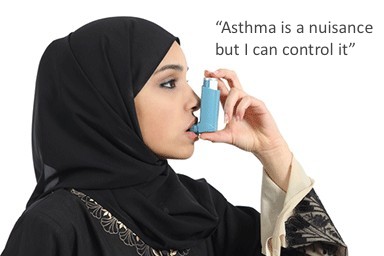Control asthma

Asthma affects the lungs. It can’t currently be cured but can usually be controlled
- be in control of your asthma
- advice about using inhalers
- understand what causes asthma attacks
With Dr Morton’s - the medical helpline© you can email or phone a real doctor at any time for more information, reassurance or advice
Dr Morton's Prescription© for hay fever
Dr Morton's Test Kit© for allergies
Asthma management and control
Asthma is a common long-term condition, seen mainly in people in developed countries. In the UK, one in twelve adults and one in eleven children receives treatment for asthma. Symptoms are caused by inflammation of the bronchi (airways) through which air passes into and out of the lungs. Asthmatic people have sensitive bronchi that can go into spasm if they come into contact with something that causes irritation – a trigger. Triggers can vary between people but are often linked to allergies. When your bronchi go into spasm they become narrower as the muscles in the wall contract. There is also an increase in the production of mucus (phlegm). This makes it literally more difficult to pull air into the lungs when you breathe in and particularly hard work to push the air out when you breathe out, resulting in the characteristic 'wheeze' sound.
Asthma symptoms
- tightness in the chest
- coughing, sometimes mainly at night
- wheezing
- feeling breathless
If symptoms come on suddenly or severely this can signify an asthma attack or an ‘acute asthma exacerbation’. Asthma attacks can be relatively mild or may require hospital treatment. In extremely rare cases they may be life-threatening. In some people with chronic asthma there can be more permanent narrowing of the airways.
Asthma can appear at any age. Asthma in children may get better after puberty, but it may also recur in later life. Children who are more severely affected are more likely to suffer as adults.
What causes asthma?
Nobody yet knows exactly why some people get asthma and others don’t. Asthma can run in families, suggesting that genetics is a factor. Like many immune-mediated diseases, it is more common in women than men. Asthma is probably caused by a complex interaction between environmental triggers and genetic predisposition.
A trigger can be anything causing irritation to the bronchi which brings on the symptoms of asthma. Different people have different triggers and may have one or multiple triggers.
Common triggers include
- house dust mite
- pet dander and fur
- pollen
- cigarette smoke
- exercise
- cold air
- chest infections, or colds and flu
Some people may develop asthma if they undertake certain jobs where they are exposed to allergens such as latex. This is work-related or occupational asthma. You must inform your work if you think this has happened to you because preventative measures need to be put in place to protect you from becoming more severely affected.
Managing asthma
There is no cure for asthma but there are effective treatments to control symptoms and reduce attacks. If you have asthma it is important for you to identify your triggers so you can take steps to avoid them. Treatment regimes with medication are tailored to each individual.
Available treatments
There are a number of treatments available for asthma including inhaled medicines. 'Relievers' (eg salbutamol/Ventolin) are designed to relax the airways and 'preventers' (inhaled steroids such as beclometasone/Becotide/Clenil or busesonide/Pulmicort) are used to stop the airways being sensitive to a trigger. Oral steroids are sometimes needed as well, especially in acute attacks. Prompt use of antibiotics for a chest infection is important. People with asthma should have an annual flu vaccination. A doctor will work out the best treatment protocol for you.
Other conditions can give similar symptoms such as
- common cold
- chest infection
- influenza
- allergic rhinitis
- hyperventillation
When you should contact a doctor
- if your medication isn’t working effectively
- call an ambulance if you have a severe asthma attack and your medication has not eased the symptoms

